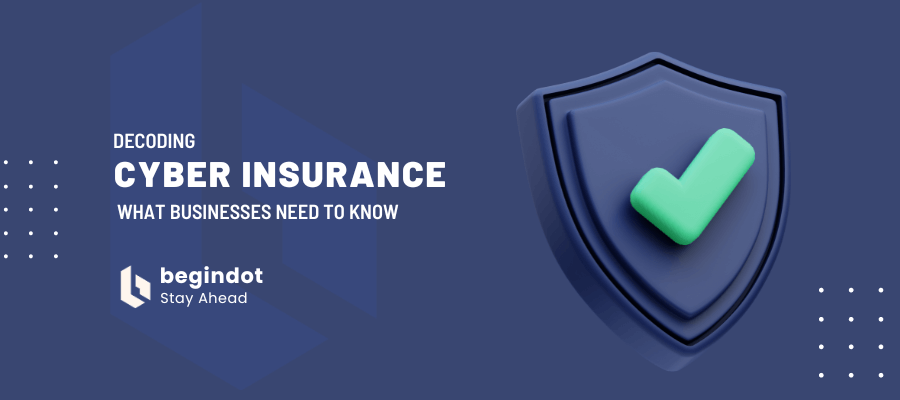No business owner would want to be without theft and property insurance or workers’ compensation. Yet, not everyone is on board when it comes to securing the sensitive data they store or the devices they use to access it.
Cyber insurance is every bit as important as the rest, maybe even more so if your business depends heavily on data hackers would love to steal.
This intro article will fill you in on everything related to cyber insurance. What it is, what it protects, and what criteria you need to satisfy to get some. Take the info we offer and start exploring cyber insurance options that fit your business needs.
What is Cyber Insurance, and Do You Need It?
Cyber insurance is an emerging type of liability protection designed to ease the burdens of incidents caused by cyberattacks. These may include data breaches, malicious insiders, human error, ransomware, and other malware types.
Despite being more frequent and sophisticated, many SMB owners still don’t perceive cyberattacks as threats worth mitigating.
Lack of concern means a lack of preparedness, with potentially crippling outcomes. The fact that 60% of SMBs are unable to financially recover after a data breach should speak volumes, yet many remain unprepared.
Does your business need cyber insurance? Most likely. Do you keep records of customers and personal information like names and addresses? Do you store their payment information or other sensitive data like medical records?
Then, you’re legally obligated to adequately protect such information. However, clever crooks and bad actors with insider information could circumvent even the most sophisticated safeguards. Cyber insurance is there to soften the blow.
What Exactly Does Cyber Insurance Cover?
The extent of your coverage depends on the provider and the type of policy you’ve accepted. Some go into effect only in case of data breaches.
Others cover more scenarios, including social engineering attacks, hardware damage and loss, or ransomware. A thorough policy will cover these incidents from multiple angles and typically address the following costs:
- Investigating the incident to determine the causes, culprits, and the extent of damage done;
- Repairing damaged hardware, restoring endpoint security, and other actions that will help the business resume normal operations sooner;
- The recovery or rebuilding of stolen or encrypted data;
- Notifying customers when an incident occurs and providing credit monitoring if their data is compromised;
- Business losses that resulted from the incident;
- Protection from slander, defamation, and other forms of reputation damage;
- Marketing campaigns and other efforts that repair the company’s damaged reputation.
How Much Are the Premiums?
According to Insureon, a typical SMB should expect $145 monthly premiums or $1,740 if they pay annually. Your premiums will vary depending on factors like the scope and amount of data you collect, your industry, how many employees you have, and the state of your company’s security posture.
Once you apply for cyber insurance, the provider will audit your company’s current cybersecurity measures. If they’re sufficient, you’ll sign a contract outlining your responsibilities and the provider’s obligations.
The provider may find your security measures wanting and propose improvements before agreeing to go forward.
What Are the Cybersecurity Prerequisites for Cyber Insurance?
Eligibility for cyber insurance is possible only if your company demonstrates an adequate security posture as well as compliance with relevant laws and regulations.
Specifically, companies must provide up-to-date endpoint security and have a data backup policy in place. Moreover, there needs to be some form of data access control that ensures only accredited users can view and handle sensitive data.
Network security is another prerequisite that’s increasingly harder to satisfy due to hybrid and remote work. A central firewall is no longer enough. You should augment it with a business VPN to strengthen your cybersecurity posture and improve your position in cyber insurance contract negotiations.
Business VPNs provide equally effective, encrypted network access independent of location and connection method. It ensures that employees working remotely or are otherwise off-site can connect to the company’s network securely and anonymously to exchange information and do their work without compromising data security.
Additionally, implementing a strong password policy, insisting on multifactor authentication for vulnerable accounts, and regularly conducting employee training will all help reinforce your seriousness about cybersecurity threats and could influence premium costs.
Conclusion
Cyberattacks are a legitimate and ever-present threat regardless of a company’s size and preparedness. Assuming your business will fall victim to one eventually isn’t unreasonable.
Strengthen your cyber defenses as best you can, and let the right cyber insurance help soften the blow when it does come.










